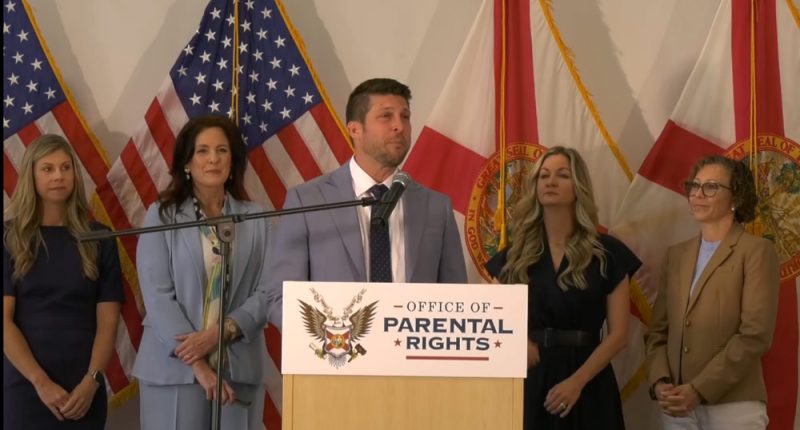
After an appeals court rejected his arguments, Florida Attorney General James Uthmeier last week asked the U.S. Supreme Court to step in and at least temporarily allow enforcement of a new law targeting undocumented immigrants who enter the state.
Uthmeier’s office filed a 34-page document seeking a stay of a preliminary injunction that U.S. District Judge Kathleen Williams issued in April to block the law. A panel of the 11th U.S. Circuit Court of Appeals on June 6 rejected such a stay.
If the Supreme Court grants Uthmeier’s request, the state could enforce the law while what could be a lengthy court battle plays out.
“Florida is enjoined from enforcing its statute to the detriment of Florida’s citizens and the state’s sovereign prerogative to protect them from harm,” lawyers in Uthmeier’s office wrote in the document. “Illegal immigration continues to wreak havoc in the state while that law cannot be enforced. And without this (Supreme) Court’s intervention, Florida and its citizens will remain disabled from combatting the serious harms of illegal immigration for years as this litigation proceeds through the lower courts.”
The request, filed last Tuesday, is the latest twist in a contentious fight about the law, which passed during a February special legislative session and was signed by Gov. Ron DeSantis. The law created state crimes for undocumented immigrants who enter or re-enter Florida, with supporters saying it was aimed at helping carry out President Donald Trump’s policies on preventing illegal immigration.
Attorneys for the Florida Immigrant Coalition, the Farmworker Association of Florida and two individual plaintiffs filed the federal lawsuit in April, alleging the law is unconstitutional. After initially issuing a temporary restraining order, Williams issued a longer-lasting preliminary injunction to block enforcement.
Williams ruled that the law was likely preempted by federal immigration authority. Uthmeier appealed that ruling and asked the 11th U.S. Circuit Court of Appeals for a stay of the injunction but was turned down.
The three-judge appellate panel said its decision “does not definitively resolve” whether federal immigration law preempts — essentially takes precedence over — the state law, but it said Uthmeier had not met tests for a stay.
“It seems likely — given the federal government’s longstanding and distinct interest in the exclusion and admission of aliens, and the (federal) Immigration and Nationality Act’s extensive regulation of alien admission — that this principle is satisfied with respect to the field of alien entry into and presence in the United States,” said the June 6 decision shared by Judges Jill Pryor, Kevin Newsom and Embry Kidd. “Accordingly, the attorney general has not made a ‘strong showing’ that the district court was wrong to conclude that SB 4-C is likely field preempted.”
But in the document filed last week at the Supreme Court, Uthmeier’s office disputed that the state law is preempted, saying it “purposefully tracks federal law to a tee.” It also argued that the Supreme Court ultimately would side with Florida on the underlying issues in the dispute.
“The district court’s injunction is indefensible both on the merits and in its sweeping breadth,” the state’s attorneys wrote. “Should the Eleventh Circuit nevertheless affirm (Williams’ ruling), there is a strong likelihood that this (Supreme) Court will reverse.”
The document also delved into a dispute between Uthmeier and Williams about whether the injunction should apply to law-enforcement officers across the state — a dispute that last week resulted in the judge finding Uthmeier in civil contempt.
Uthmeier argued the injunction should only apply to him and local state attorneys, the named defendants in the lawsuit. But Williams also applied it to police agencies across the state, effectively ensuring the law is not enforced.
While Uthmeier wants the Supreme Court to issue a stay on the entire injunction, last week’s request also raised the possibility of the court issuing a partial stay so that the injunction would not apply to law-enforcement officers.
“Worse still, the district court bound all Florida law-enforcement officers, who are not parties to this case,” the state’s attorneys wrote. “That decision inflicts irreparable harm on Florida and its ability to protect its citizens from the deluge of illegal immigration.”
The appeals-court panel declined to issue a partial stay that would have applied Williams’ ruling only to Uthmeier and state attorneys.
Williams’ unusual contempt finding last week stemmed from a letter that Uthmeier sent in April to police after she ordered a halt to enforcement of the law. Williams said Uthmeier violated a directive to notify police agencies that what was then a temporary restraining order barred them from enforcing the law.
“Uthmeier’s role endows him with a unique capacity to uphold or undermine the rule of law, and when he does the latter by violating a court order, the integrity of the legal system depends on his conduct being within the court’s remedial reach,” Williams wrote in the 27-page contempt decision.
–Jim Saunders, News Service of Florida











